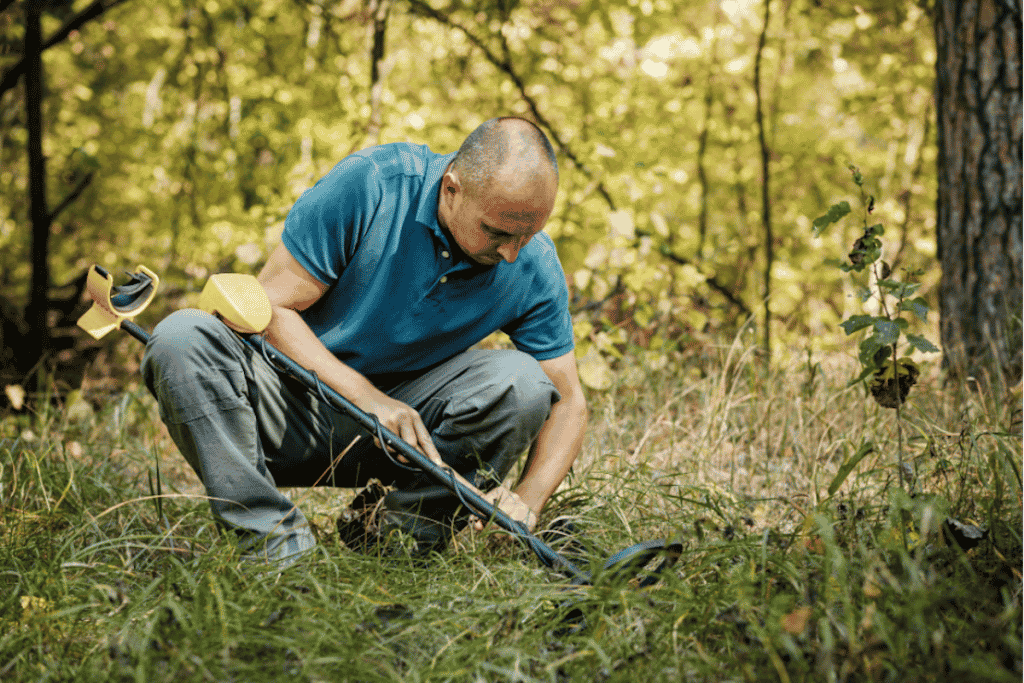The buzz about the metal detecting hobby has already reached the ears of those history fans who generally sit at home reading books. Metal detecting as a hobby is fun as it is, but for history fans or actually historians, this hobby may become a real-life experience and interaction with the history they are interested in.
Of course, every metal detectorist needs knowledge, a metal detector, and skills. The best metal detector reviews can be chosen, and as for the knowledge and skills, those are yet to be acquired by a newbie detectorist.
A lot has already been written on hobby metal detecting; first things first, brand manufacturers provide detailed guidelines on detecting and comprehensive instructions on each of their machines. Next, all kinds of already successful detectorists and bloggers have video lessons and extensive descriptions at a newbie’s service. So, theoretical knowledge is not a problem.
After the wannabe detectorist has the knowledge and a metal detector, they need to learn and develop their practical skills. As soon as they start practicing, all the perks of hobby metal detecting for historians are revealed to them.
Historical Finds
The first and foremost benefit of hobby detecting is of course the opportunity to spot some historical finds! Depending on the locations available to the detectorist, the finds may be very different, from coins to everyday relics, to war relics, to ancient jewelry, etc.
Historians are aware of how important the location is, and locations that today seem regular and trivial could be important places for people of the past – markets, main tawn squares, pub location, city hall locations, churches, museums, rich person’s residences, etc. Therefore, a common place can turn out a source of impressive finds that have historical or cultural value. One may start a collection, or give the find to the local museum.
Treasures & Valuables
The efficiency and success of metal detecting generally depend on proper location research, skills, and effective metal detector. There are a lot of books about metal detecting on the web and its highly recoommended to find out all aspects of metal detecting before.
Those very lucky detectorists that have it all plus a little bit of luck can hit it big and find something really important or valuable, like a unique artifact or a real ancient treasure.
The very perspective is exciting, but as a result, the person can actually contribute to the historical and cultural heritage of their area or even country, become famous, and even rich if a national museum buys the find. Some finds are legally allowed to be sold to private collections which also means potentially good money for the finder.
Outdoor Activity – Alone or In a Company
It is typically believed that history fans are usually bookworms who hardly get outside for any tasks that are not directly connected to social and economic tasks. However, metal detecting is an active way to be a historian. Now, with the hobby metal detecting, history fans and historians can come out and interact with history in real life – not only in books.
Many people tend to believe that metal detecting is a kind of physical exercise, but it is very moderate and it is basically slow walking with a heavy stick in your hand. The really good thing about metal detecting is the ability to spend long hours outside with a good excuse.
Another good thing about metal detecting is that it can be done alone or in a company. For some, metal detecting is an excuse to go out alone and get some rest of their noisy family, because everyone else gets bored while one person walks around listening to the irritating beeps or a weird-looking machine. On the other hand, like-minded people also get a good excuse to hang out together, but not at home and not in a pub, but breathing fresh air.
Community
Regardless of whether a history fan prefers metal detecting all alone or with friends, many states, countries, and even cities have their own official communities for hobby or historical metal detecting. Community is not obligatory for a company, but communities are good to borrow or share equipment, learn more about the relevant legislation, get access to archives, participate in events, etc. Communities and metal detecting clubs may provide training, lectures, or offer traveling to more distant locations in an organized manner.
Traveling
Eventually, hobby metal detecting is a good excuse to explore new places or look at the old places from a new point of view. While people interested in history may travel often to learn more and look at things, being able to potentially interact with their objects of interest is a good motivation for traveling and exploring. It must only be remembered that not all locations are allowed for metal detecting.
